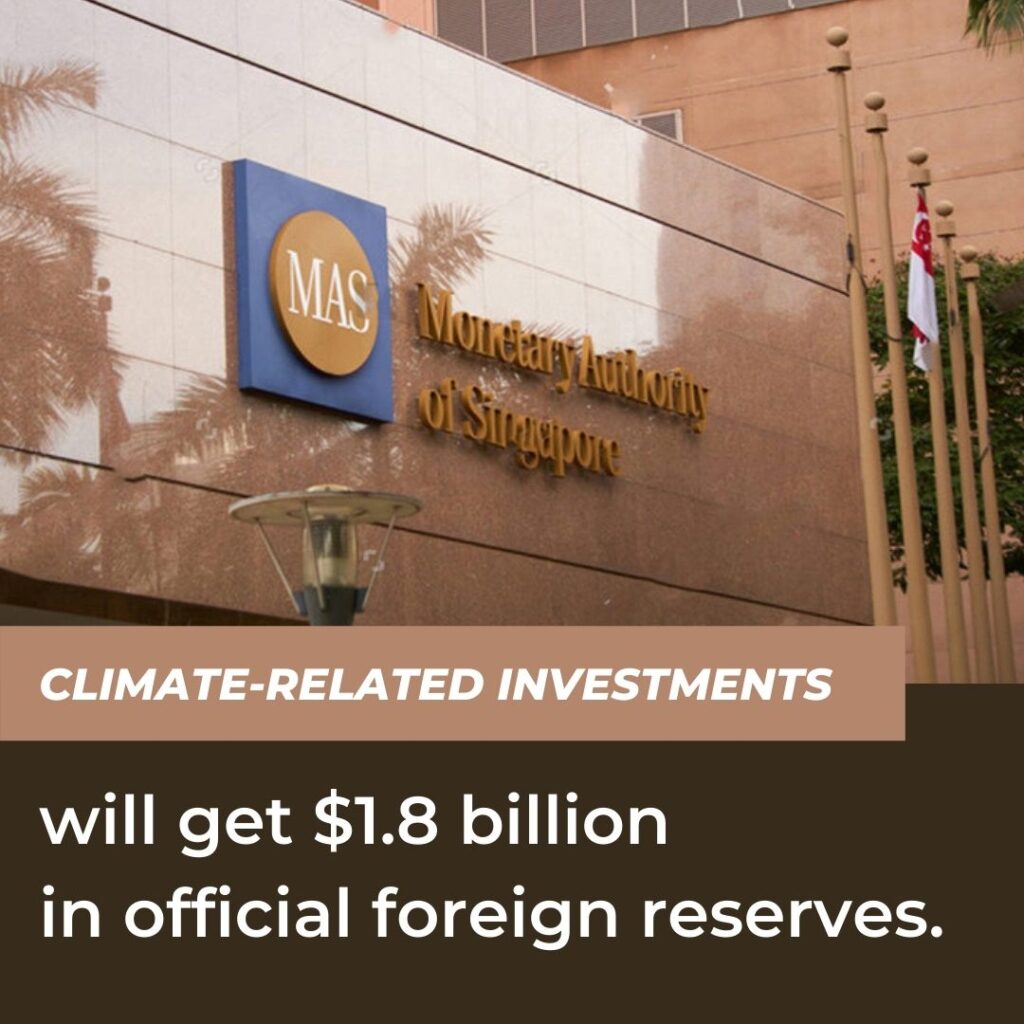 0
0
SHOPPING CART

According to MAS managing director Ravi Menon, the Monetary Authority of Singapore (MAS) will provide US$1.8 billion of its official foreign reserves (OFR) to five asset managers for climate-related investments.
The deployment is part of the US$2 billion Green Investment Programme (GIP) that was established in 2019. The asset managers’ names will not be revealed, but they plan to establish Asia-Pacific sustainability hubs in Singapore and create new environmental, social, and governance (ESG) theme funds for the area.
They are anticipated to begin operations in the next few months. “The GIP will help to enhance the climate resilience of the official foreign reserves, attract sustainability-focused asset managers to Singapore, and catalyse funding towards environmentally sustainable projects in Asia and beyond,” Mr Menon said at the launch of the MAS’ first sustainability report on Wednesday.
Mr Menon also noted that: “As the custodian of Singapore’s official foreign reserves, the MAS is incorporating climate risks and opportunities into its investment framework.”
According to a recent report released by financial data provider Preqin in collaboration with multinational law firm Baker McKenzie, climate change is expected to drive more sovereign wealth funds and institutions managing reserves to incorporate ESG criteria into their operations and investment decisions in the coming years.
To develop a climate-resilient reserves portfolio, the MAS will remove from its portfolio those enterprises that are most vulnerable to the economy’s shift towards lower carbon intensity. For instance, companies that generate a significant portion of their revenue from thermal coal mining will be taken out if they do not have a credible transition strategy.
The MAS also anticipates that its external managers would gradually incorporate ESG concerns into their investment process in order to reduce climate risks in their portfolio.
Following the Bank of England, the MAS is the world’s second central bank to publish a standalone sustainability report. As part of the report, the MAS collaborated with GIC and external experts to carry out an MAS portfolio analysis based on various climate change scenarios to determine potential investment impacts.
As stated by the report, stock returns are more sensitive to changes in macro-economic factors (such as GDP) caused by climate change, as well as changes in companies’ earnings driven by climate-related variables such as carbon prices.
On the contrary, sovereign bonds are less influenced by climate change. Nonetheless, physical and transition risks associated with climate change still remain, possibly decreasing portfolio returns.
Physical risks include damage to physical infrastructure, interrupted production of goods and services, and disruptions to companies’ supply chains due to climate change. Transition risks surface as a result of the transition towards an environmentally sustainable economy.
Based on the MAS’s sustainability report, physical risk contributes more to portfolio impact than transition risk; however, the most detrimental effects of physical risk occur much later; transition risks are a more instantaneous risk.
However, even within the same scenario, the impact of transition risk was found to vary widely, requiring nimbler portfolio actions to maximize portfolio returns, according to the MAS in the report.
The MAS will set emissions reduction targets in 2025 and 2030 by next year’s sustainability report and will evaluate the earliest possible time frame to reach net-zero emissions.
To learn more about Singapore incorporation, economy, banking, etc., feel free to call/WhatsApp us at +65 90612851 or email us at aceglobalacct@gmail.com. Alternatively, you may leave us a reply using our contact form below.
Keep in touch to receive the latest listing, news updates and special offers delivered directly to your inbox.
